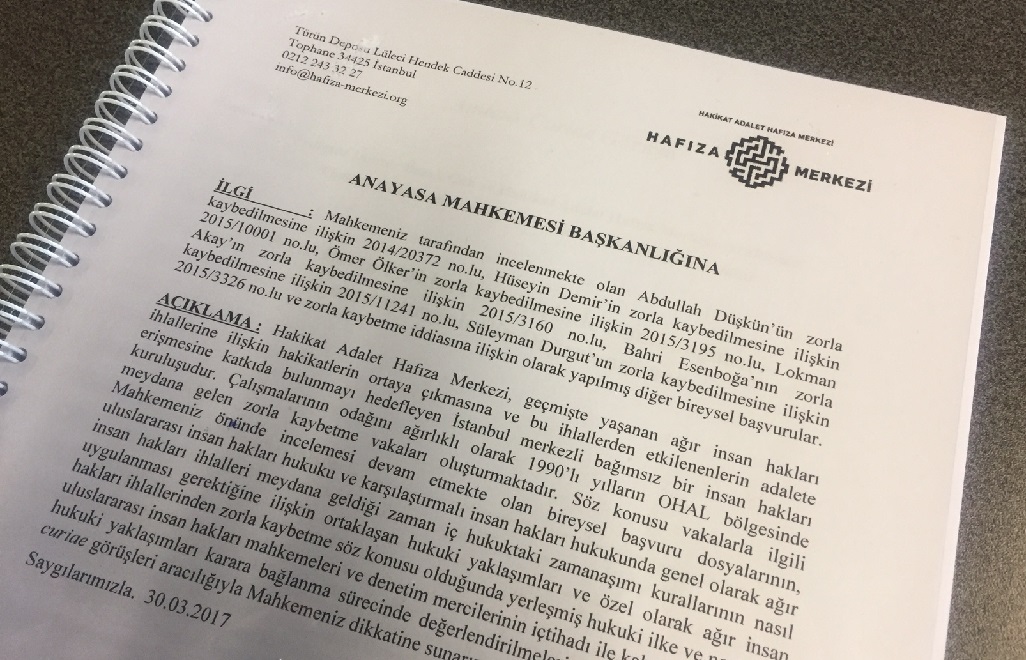
We presented two new legal opinions to the Constitutional Court
On Thursday, 30 March 2017 we submitted two new legal opinions in the form of “amicus curiae” briefs to the Constitutional Court. The report aims to draw the attention of the Constitutional Court to our legal opinion concerning the cases of enforced disappearances which await the Court’s decision. Hafıza Merkezi confirmed that the Court has received 19 individual applications for enforced disappearances up to this date. While the Court has made a decision about 6 of these applications, the ruling for the remaining 13 applications is still pending.
The first legal opinion submitted by Başak Çalı brings to the attention of the Court common approaches of international and comparative human rights law on the implementation of the statute of limitations in the municipal law concerning grave violations of human rights. The second legal opinion presented by Osman Doğru and Hülya Dinçer focuses on the crime of enforced disappearance, a grave violation of human rights, and how to apply the statute of limitations in relation to the continuity of this crime which constitutes its unique character. Both legal opinions emphasize the importance of the right to truth and argue that the statute of limitations should not be interpreted and applied in a way that would shroud the truth about these violations.
Why?
As a new method of legal intervention, we have started to present legal opinions to the Constitutional Court in the form of amicus curiae briefs as a response to the deadlocks we see in national courts concerning the cases of enforced disappearance. On 1 November 2014, we filed our first legal opinion to the Court on the case of Hasan Gülünay who was forcibly disappeared in 1992. We have published this report in Turkish. The Constitutional Court made its decision on the case on 21 April 2016. In our assessment of the ruling, we underline that the Constitutional Court did not put enough emphasis on the European Court of Human Rights’ (ECHR) established case-law on enforced disappearances.
What is Amicus Curiae?
Amicus curiae is a Latin law term which stands for a person or a group who is not a party to the lawsuit, but would submit information that would influence the court’s decision. Amicus curiae notifies the court on wide legal, social and economic impacts of the ruling and stresses concerns. It works as an intervention tool to give voice to individuals who may be affected by the ruling. It encourages the court to take decisions in a more comprehensive and proper legal framework. It aims to develop court practices by presenting alternative legal opinions.



